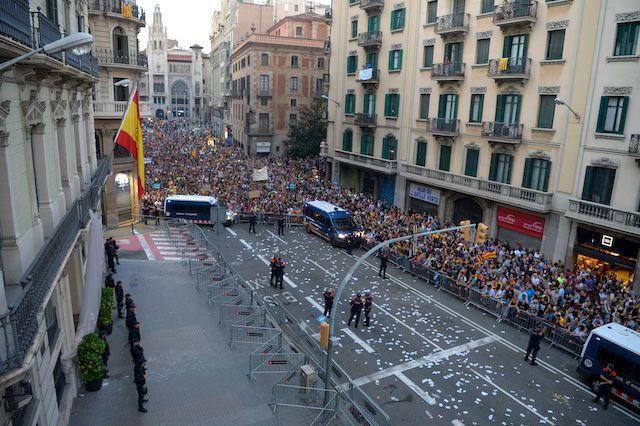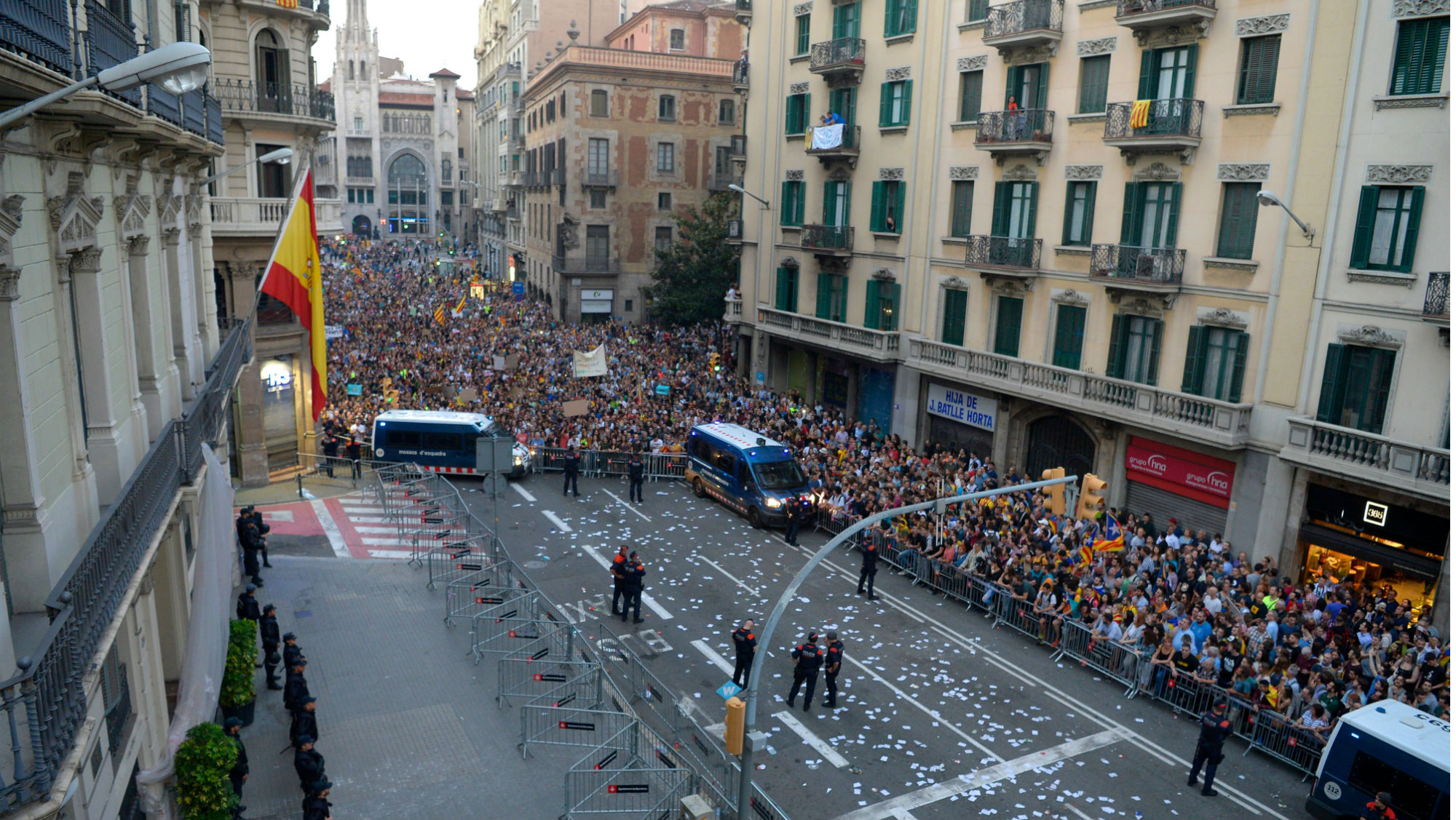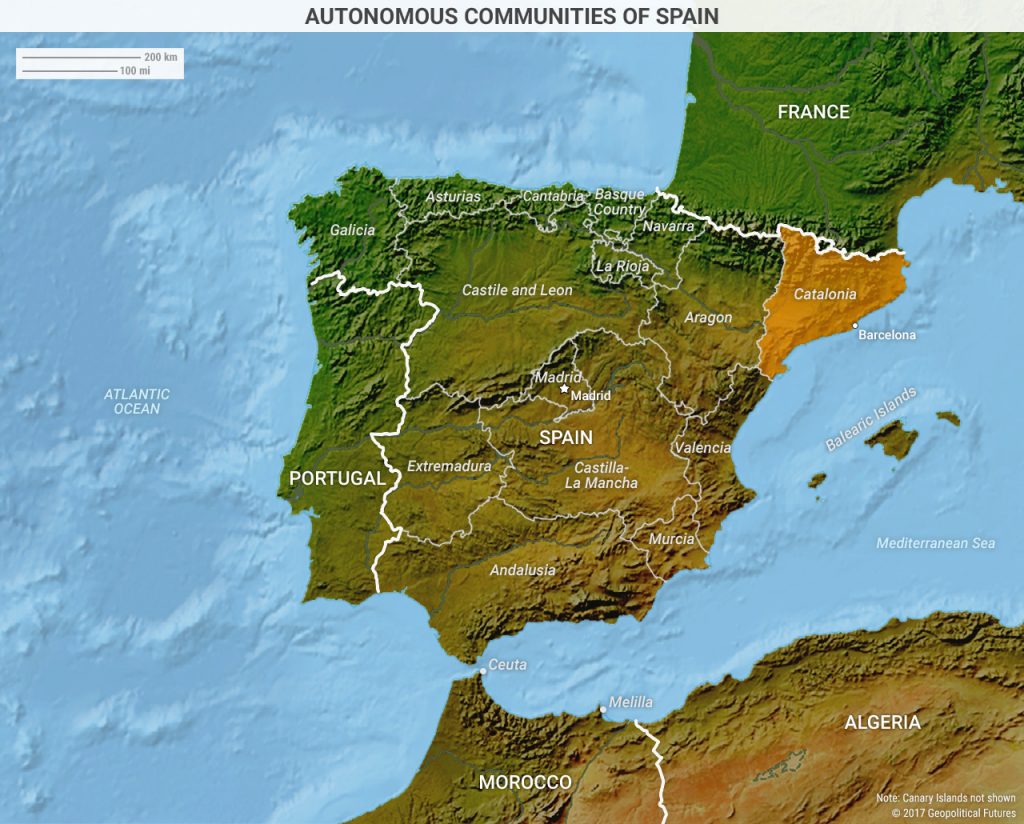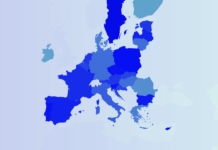By Jacob L. Shapiro
Leon Trotsky once said that “every state is founded on force.” It’s an unpleasant truth that we would all rather forget, but it’s important to bear in mind as the fight between Spain and Catalonia intensifies. Images from the weekend of Spanish police obstructing – and at times beating – would-be voters in Catalonia’s (technically illegal) independence referendum contravene the basic tenets of classical liberalism, the political ideology upon which the West was built. How, the virtuous cry, can such a thing be possible in Europe in the 21st century?
If you ignore 20th-century European history, it’s a fair question. Raising the question doesn’t change the fact that Catalonia is a nation, not a state, and it won’t become a state anytime soon because it will not be able to claim, as Max Weber described it, “the monopoly of the legitimate use of physical force within a given territory.”
A Long Shot
Catalonia held its independence referendum on Oct. 1. Provisional results indicate that of the 42 percent of Catalan voters who turned out to vote, roughly 90 percent voted for independence. It’s an impressive figure but not exactly an overwhelming mandate for Catalonian independence. No doubt a significant number of Catalans want independence, but we already knew that. The 2014 referendum had a similar turnout, and 81 percent voted for independence. That non-binding referendum didn’t go anywhere, and neither will this one.
Catalonia simply does not have the monopoly on force necessary to even vie for control of its territory, let alone win it. Catalonia has a regional police force of about 17,000 officers. Spain’s National Police Corps has more than 80,000 officers, and the Guardia Civil boasts another 75,000 Spaniards under arms. Catalonia has no army, no navy and no air force; Spain has all three. This was never going to be a replay of the Spanish Civil War: Catalonia is not ready to fight a war, and things being as they are, it would be very difficult in the near term for Catalonia to change that even if it wanted to. Independence is rarely granted: Most of the recent centuries of political history show that independence usually has to be won with the sword after it has been declared with the pen.
 Protesters gather on Oct. 3, 2017, in front of the Spanish National Police headquarters during a general strike in Catalonia called by Catalan unions in Barcelona. JOSEP LAGO/AFP/Getty Images
Protesters gather on Oct. 3, 2017, in front of the Spanish National Police headquarters during a general strike in Catalonia called by Catalan unions in Barcelona. JOSEP LAGO/AFP/Getty Images
The leaders of Catalonia’s independence gambit knew as much and decided to take a long shot anyway. Once the votes were cast, there were only two outcomes that could have resulted in independence: civil disobedience disruptive enough to Spanish life to force Madrid to compromise, or international intervention of some kind, whether political or more substantial. As to the former, the Oct. 3 strike notwithstanding, it is unlikely Catalonia can mount such a campaign even with Spanish excesses during the voting. A large number of Catalans prefer to remain part of Spain, their reticence for autonomy due in no small part to their own economic well-being, which in practical terms means it will be very difficult for the Catalans in the streets to reach a critical mass.
Empty Declarations
The strategy of the Catalan government, it seems, was pinned on the hope of intervention: making the conflict an international issue, and in so doing generating enough pressure on Spain’s government to back down. At this, Catalonia has already failed. European countries rarely agree on anything, but they agree on not backing Catalan independence. The European Commission said it most plainly when it said that “this is an internal matter for Spain that has to be dealt with in line with the constitutional order of Spain.” The European Commission statement contained a platitude at the end condemning violence but stopped short of criticizing the Spanish government, instead noting that the commission trusts the leadership of Spanish Prime Minister Mariano Rajoy. A veritable chorus of assents followed the statement. Poland and the European Commission have been at each other’s throats in recent weeks, but there is no daylight in their stances toward Catalan independence: Poland’s Ministry of Foreign Affairs said the sovereignty, territorial integrity and unity of Spain must be respected. Countries with as varied interests as Germany, France, the U.K., Croatia and Serbia all see eye to eye on this score.
Nor is support forthcoming from outside of the EU. On this, Russia is of one mind with the United States, and Japan is of one mind with China. What international support has emerged has been from fellow stateless groups aghast at the precedent that is being established in Spain. Scotland – which knows what it is like to be left at the altar by the EU – condemned Spain and demanded that Madrid change its course. Representatives of separatist parties in Quebec and Northern Ireland also made a point of saluting Catalonia’s struggle. One country that did come out unambiguously in support of Catalonia was Nicolas Maduro’s government in Venezuela. Besides the hypocrisy of Maduro’s critique of Spain’s “repression” considering the domestic political situation in Venezuela, the support of a state that is close to international pariah status is not of much use to Barcelona in its hour of need.
Catalonia’s regional president may very well follow through on his promise to declare Catalonia’s independence within 48 hours of the publication of the official results of the referendum. Then what? History is replete with empty declarations of independence. One of the most recent came in 1991, when the Republic of Kosovo declared independence and was recognized by just one country: Albania. 1992 was more important from Kosovo’s point of view because it was also the year the Kosovo Liberation Army formed. A war, a genocide and a NATO intervention later, Kosovo tried again in 2008, and now it has some international standing, though some in the EU, including Spain, still don’t recognize it.
Catalonia has lost this round. Without international backing or a revolutionary uprising – neither of which appear anywhere on the horizon – Spain will use its monopoly of force legitimized via the Spanish legal system to quash the threat that Catalonia is posing to Spain’s unity and territorial integrity. In doing so, however, Spain will sow the seeds of a much larger problem, because though it does not appear that there is a critical mass of Catalans willing to fight and die for independence right now, today’s repression creates tomorrow’s generation of young Catalans who will grow up to see Spain as an enemy. In the meantime, Europe and the rest of the world are correct in their analysis: This has been and will remain an internal Spanish affair.









